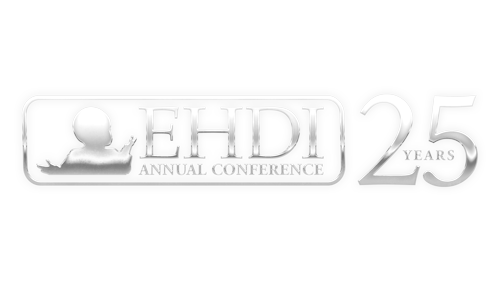2026 Early Hearing Detection & Intervention Conference
March 15-17, 2026 • Jacksonville, FL
3/11/2025 | 10:10 AM - 10:40 AM | Unite Newborn Screening: lessons learned from an EHDI and DBS Learning Community | 321
Unite Newborn Screening: lessons learned from an EHDI and DBS Learning Community
All states have newborn screening (NBS) systems in place that include Dried Blood Spot (DBS) and Early Hearing Detection and Intervention (EHDI) programs, typically managed through their state departments of health (DOH). However, the DBS and EHDI programs are frequently housed in different DOH divisions, which often silos the NBS programs and, in turn, decreases collaboration.
Recognizing the lack of cohesion between DBS and EHDI, the National Center for Hearing Assessment and Management (NCHAM) and the NewSteps program of the Association of Public Health Laboratories (APHL) came together to provide an opportunity for states to participate in Unite Newborn Screening: An EHDI and DBS Learning Community comprised of and EHDI and DBS staff and parents in each state (four members per state). The invitation to participate was sent out and applications were scored on a set criterion. The states selected to participate were Louisiana, Michigan, South Dakota, and Indiana. The deliverable of the LC was to produce a promising practice guide that will serve as a resource for other states who would like to improve their DBS and EHDI collaboration.
During an in-person kick-off meeting, each state selected a project. All states utilized the Model for Improvement methodology—including developing an aim statement, identifying measures to determine if they were moving toward reaching their aim, and selected strategies to test through plan-do-study-act cycles.
This presentation will share team results from the LC concluding June 2024. LA selected to work on prenatal education. To increase the knowledge of the importance and what to expect from NBS amongst pregnant people, the team tested strategies such as conducting focus groups and training during prenatal education courses. SD worked to educate stakeholders on the importance of NBS with key stakeholders in their state. Education methods such as emails, phone calls, trainings, and printed materials were tested. IN focused on the quality of materials given to families at the time of a suspected diagnosis. The team worked with two primary clinics. Educational materials from the clinics were tested evaluating the materials using a rubric and checklist for providers in creating educational materials for NBS. MI chose to train midwives in two areas of the state around the importance of newborn screening. They created and tested shared educational materials, developed and delivered training, and collected data from the trained midwives on knowledge and confidence in conducting NBS for the babies they delivered.
NBS collaboration has the potential to demonstrate a unified approach to all NBS programs that will deliver a cohesive message to all expecting families and families of children with screenable newborn conditions. A cohesive message will emphasize the importance of NBS as well as increase public trust in and what to expect from in the NBS system.
- Participants will name at least one reason why it is important to work with the DBS program in their state.
- Participants will cite four different strategies tested by the Unite Newborn Screening Learning Community.
- Participants will strategize one activity that they will collaboratively test with their DBS program.
Presentation:
3545975_18375AlysonWard.pdf
Handouts:
Handout is not Available
Transcripts:
CART transcripts are NOT YET available, but will be posted shortly after the conference
Presenters/Authors
Alyson Ward
(Primary Presenter), NCHAM, alyson.ward@usu.edu;
Ms. Ward earned a MS in Health Education in 2008 through Utah State University and became a certified as a Quality Improvement Advisor by the Institute for Healthcare Improvement in 2015. For the past 20 years, her career efforts have demonstrated commitment to improving public health through health promotion, education, research, policy development, evaluation, and grant development from the community to national levels. Ms. Ward’s positions and interests provide her with broad and valuable experiences in public health. Currently, Ms. Ward is engaged in learning systems development (e.g., coalitions, learning communities, and collaboratives) and children’s health research (e.g., environmental, viral, and genetic factors) as the Director of Quality Improvement at the National Center for Hearing Assessment and Management. She is also the Co-Director of the CMV (cytomegalovirus) Public Health and Policy Conference and serves on the board of the National CMV Foundation.
ASHA DISCLOSURE:
Financial -
No relevant financial relationship exists.
Nonfinancial -
No relevant nonfinancial relationship exists.
AAA DISCLOSURE:
Financial -
No relevant financial relationship exists.
Nonfinancial -
No relevant nonfinancial relationship exists.
